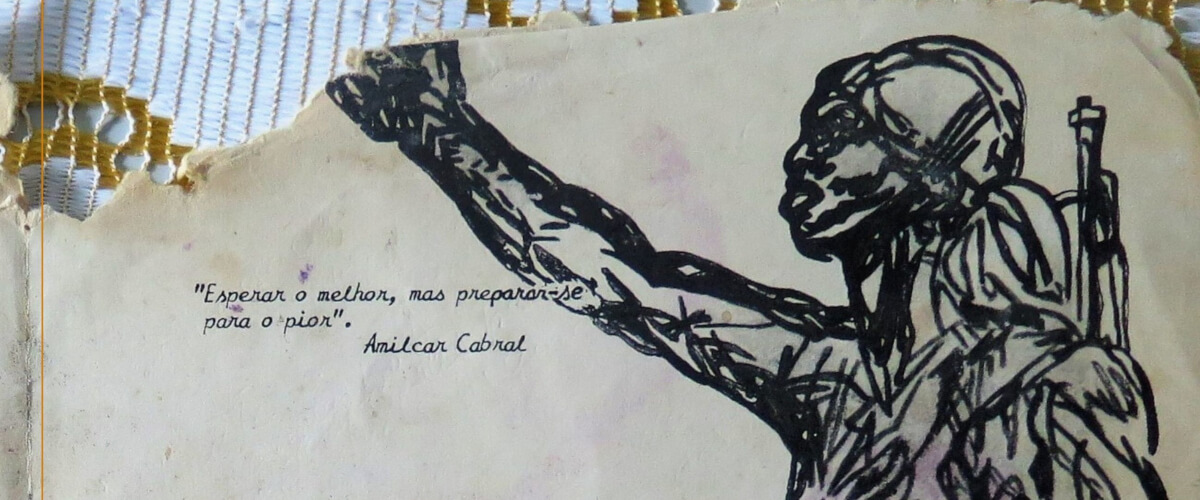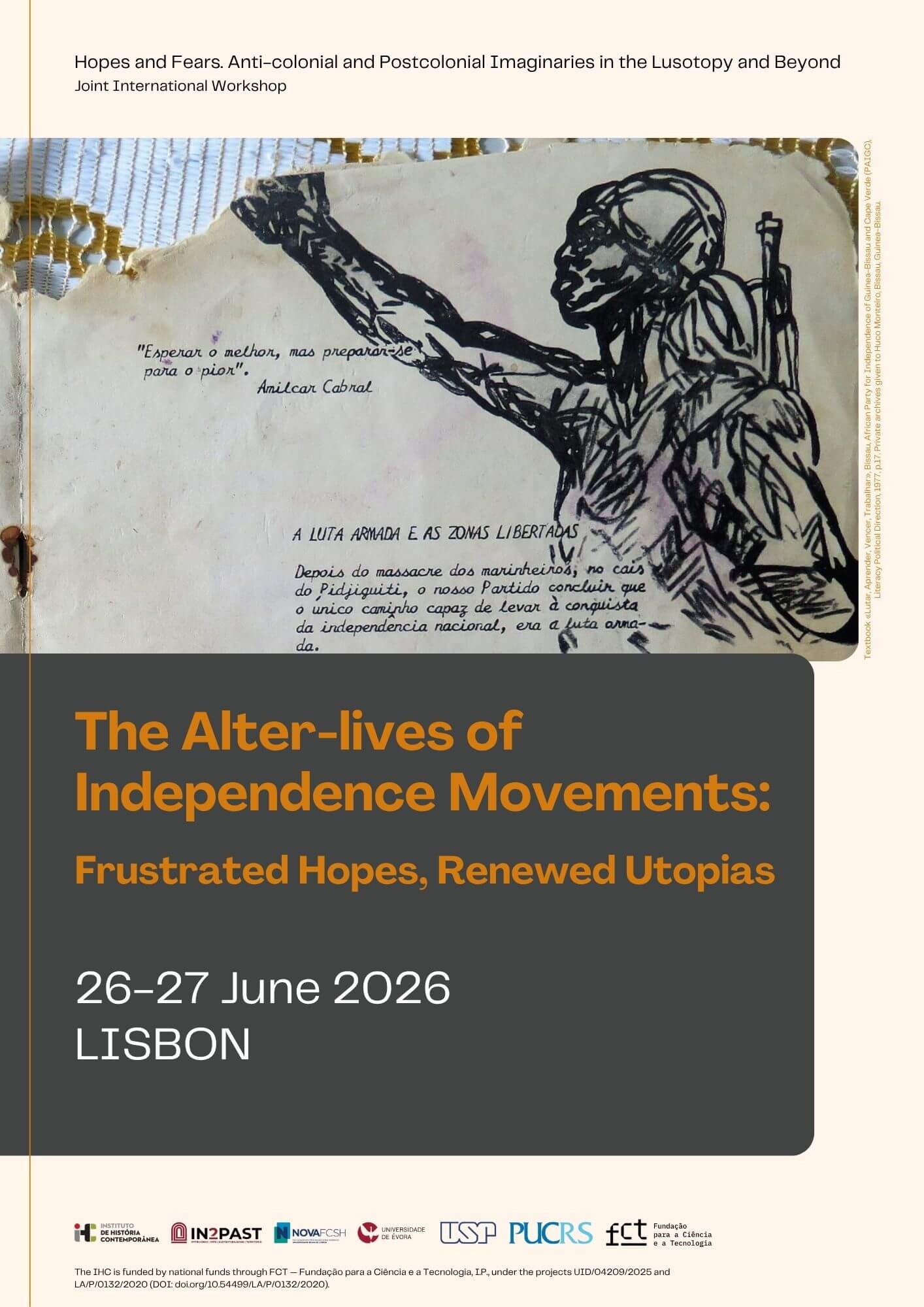junho, 2026

Detalhes do Evento
Two-day conference on the alter-lives of independence movements that explores the evolution and transformation of anti-colonial and anti-imperial struggles. Deadline: 13 February 2026 The Alter-lives of Independence Movements:
Ver mais
Detalhes do Evento
Two-day conference on the alter-lives of independence movements that explores the evolution and transformation of anti-colonial and anti-imperial struggles. Deadline: 13 February 2026
The Alter-lives of Independence Movements:
Frustrated Hopes, Renewed Utopias
Decades after formal decolonisation, anti-colonialism and anti-imperialism have remained a wellspring of inspiration and contestation. Studies about anticolonial thought, the 1955 Bandung Conference, and transcontinental solidarity movements have proliferated in academia and activist networks, providing the basis of theories and practices of resistance in contemporary times. Nevertheless, the ideas and the movements they inspired did not perish with the epoch that produced them. They evolved and acquired alternative lives in the period of nation-building and world-making, whether in extended or distorted forms. On the one hand, there were local and transnational efforts to sustain and enrich the revolutionary impulse through embracing the anticolonial spirit in various areas such as development, education, and diplomacy. As international institutions such as the UN welcome additional member states, Europeans and non-Europeans travelled to decolonised states like Algeria and Angola to learn and further cultivate ideas in building new societies. On the other hand, some dominant groups that took over the independent states capitalised on the anti-colonial pride to justify authoritarian and anti-democratic rule. Their utopian visions led to the systematic oppression of opposing forces and reproduced the hierarchical international state model. The fear of neocolonialism and disillusionment propelled both the former coloniser and colonised to reorganise their strategies and desires in the face of an emerging world order.
This two-day conference on the alter-lives of independence movements explores the evolution and transformation of anti-colonial and anti-imperial struggles. It focuses on the events and reflections about the early years of independence, a period of turbulent transition from colonial domination to self-governing nation-states, and of tumultuous beginnings of a new international order. We introduce the concept “alter-lives” to denote the process of altering imaginaries and practices that emerged during the colonial period in responding to uncertain futures, including the political uses of anticolonial memories and/or histories. It also refers to alternative relations forged between and among the former colonisers and colonised after independence. Thus, using “alter-lives” as a conceptual ground, this conference engages in the following questions: first, how have anticolonial thinking and practices evolved domestically and transnationally? Second, what were the structural and agential forces behind these evolutions? Third, how were anticolonial memories and histories politicised to achieve certain ends? Fourth, what difficulties did these agents face in realising their envisioned future? Lastly, how have alterations and alternatives affirmed and/or challenged the revolutionary ideas of the independence struggles?
Call for papers
We welcome theoretical and praxis-oriented proposals to gather scholars, activists, and artists from various disciplinary backgrounds and acquire a broad comparative perspective. Possible
areas include, but are not limited to:
- Transnational solidarities and resistance, such as North-South and South-South cooperation
- Nation-building
- Anticolonial thought and figures
- Diplomacy and international affairs
- Pedagogy and knowledge transmission
- Literary and artistic representations, such as documentaries, films, and novels
- Rhetorics of failure, frustrated political projects
Please submit your abstract (300 words max.) by 13 February 2026 to jiw.hopesandfears@gmail.com.
Decisions will be communicated by the first week of March 2026.
>> Download the call for papers (PDF) <<
This event is organised as part of the Joint International Workshop “Hopes and Fears. Anti-colonial and Postcolonial Imaginaries in the Lusotopy and Beyond”, that gathers the Institute of Contemporary History — NOVA University Lisbon / University of Évora, the University of São Paulo, and the Pontifical Catholic University of Rio Grande do Sul.
Tempo
junho 26 (Sexta-feira) - 27 (Sábado)
Localização
Lisbon, Portugal
Organizador
Institute of Contemporary History — NOVA FCSH, University of São Paulo, and Pontifical Catholic University of Rio Grande do Sul

